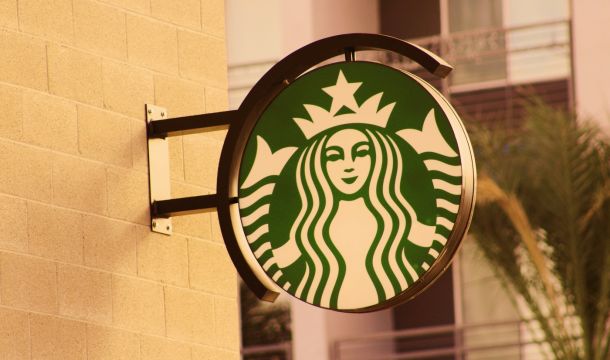"Quickie" Union Election Rules Slowed Down
For employers concerned about union organizing campaigns, the so-called "quickie" union election rules promulgated in 2014 were among the most dangerous things ever to hit labor law - only surpassed by the "card-check" proposals. Unions try to keep their campaigns secret for as long as possible, so they can develop a solid majority for unionization without the employer having an opportunity to respond. Unions therefore time their filing of election petitions so as to be filed when there is maximum union strength. Unions know that in their counter-union campaigns, management will explain the disadvantages of unionization, and therefore unions hope to hold onto their majority in the time period between the filing of the election petition and the holding of the secret ballot election. The longer the campaign period for the election, the more likely it is that the once-majority support for the union will dissipate.
The above common fact pattern is why the majority of Democrats on the National Labor Relations Board (NLRB) in 2014 introduced what became known as the "quickie" or "ambush" union election rules. While these rules contained many changes, the principal purpose was to reduce the time period from the filing of the petition and the holding of the election from around 40 days to less than 25 days. This reduced time period, together with other revisions in the rules that would distract management in any campaign against a union, was designed to allow the unions to maintain their majority support and cut short any time management might have to reduce that majority union support.
The "quickie" election rules were successful in reducing the election time periods, cutting these time periods from around eight weeks to a little over three weeks. Similarly, the number of union elections held, and the percentage of elections won by unions, around 70%, also slightly increased. Surprisingly, however, the number of voters in union elections did not increase, as the increased number of union elections generally were held in smaller voting units.
Upon the election of the current Administration, Republican leadership wanted to revise, if not eliminate, the "quickie" election rules to return to the rules that had been in place for many years. A number of initiatives were undertaken by the Republican-majority on the NLRB, as well as the appointed NLRB General Counsel, and of these initiatives the most important is the implementation of a new final rule be effective April 16, 2020, which extends the time periods before the secret ballot union election. The rule is being promulgated under the rule-making authority granted to the NLRB, as opposed to going through the notice and comment periods utilized in other situations. The most important changes in the new rule are summarized below.
- The original "quickie" election rule required pre-election hearings generally scheduled to open eight calendar days from the notice of hearing. The new rule generally requires such hearings to be scheduled 14 business days from notice of the hearing, and regional directors will have discretion to postpone the hearing further for good cause. The pre-election hearing procedures determine the appropriate voting unit, employee classifications included or excluded from such voting, and the time and place of the election.
- The original "quickie" election rule postponed eligibility to vote issues to procedures following the holding of the secret ballot election, thus allowing the earliest possible election date and postponing the resolution of disputed voting eligibility issues. The new rule will return to the traditional manner of allowing voter eligibility issues to be largely determined before the election is conducted.
- The original "quickie" election rules provided that the Regional Director of the NLRB would schedule the election for "the earliest date practicable." The new rule returns the NLRB to practices consistent with the NLRB procedures prior to the 2014 amendments. The NLRB normally will not schedule an election before the 20th business day after the date of the direction of election. The direction of election is issued after the voting unit and general voting eligibility requirements are determined. This later voting date allows the NLRB the opportunity to determine voting eligibility issues in most cases prior to the holding of the election.
While the new NLRB voting procedures are definitely a step in the right direction, it should be noted that for the most part the new rule leaves many of the controversial aspects of the 2014 "quickie" election amendments undisturbed, including some that are very controversial. The 2014 "quickie" election amendments, for example, modified the voter list requirement to require the employer: (1) To furnish additional information - including available personal email addresses, available home and personal cellular telephone numbers, work locations, shifts, and job classifications - for eligible voters; (2) to provide the same information for individuals permitted to vote subject to challenge; (3) to submit the list in an electronic format approved by the General Counsel; (4) to serve the list on the other parties; and (5) to file and serve the list electronically when feasible. Further, the new rule generally did not change the controversial Statement of Position requirements in which various briefings are made by both the employer and the union prior to the pre-election hearing.
There are many other changes in the new rule, but the above highlights and summarizes those that are probably most important for the management community. The new rule is a welcome change to the onerous "quickie" election rules, and brings about more fair procedures with opportunities for voters to hear both sides of the story.
Related Content
Get Email Updates

TPS Update (as of 2/6/2026)

Job Interviews Can Be a Good Selection Device

Suggestions on How to Diffuse a Tense Situation

Employers Blame Unions for Recent Shutdowns

$27 Million Verdict against Employer on Disability Discrimination over Refusal to Return Employee to Work


